

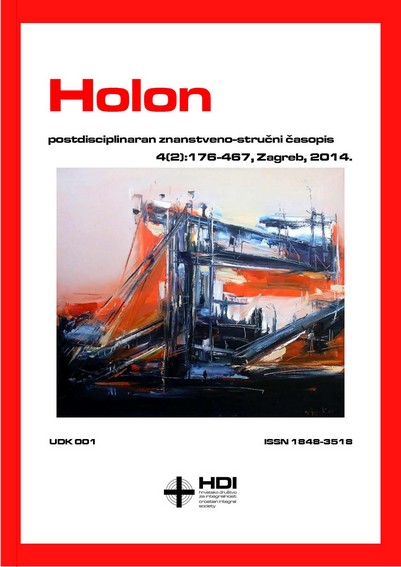

Keywords: Foucault; geo-epistemology; places; spaces; spatial turn
The paper discusses Foucault’s “spatial turn” which represented a very firm criticism of the western historical thought. By introducing “new” spatial metaphors or dispositives in the restoring Foucauldian discourse, through the concept of geo-epistemology, we identify the significance of this turn. Geo-epistemology simultaneously represents the analysis of knowledge and discourses which are formed through spaces and the analysis of space formed through knowledge/power/discourses. Of many spatial metaphors that Foucault used in almost his entire opus we single out the metaphor of the scenography of space/dramaturgy of scenes, which reflects well Foucault’s usual starting points of the analysis which he used to indicate points of break and transformation: of discourses, established practices, their effects, ritual regularities and implementations, their relationships – towards bodies, population, the diseased, prisoners, people on the margins, abnormal people. The paper names examples of discourses and practices that Foucault researched in order to demonstrate that the subjects of his analysis always had their spatialized forms, their geography, their archaeology, history, and a Nietzschean type of genealogy, i.e. spaces where they were placed and in which their speeches or technologies were distributed. The paper also discusses Foucault’s “heterotopic geography” which was only seemingly reactionary and conservative in its relinquishing of dialectal sources of a totalizing history. In the conclusion the paper stresses that, unlike Neo-Marxist responses to the hegemony of a temporal narrative, Foucault’s research of space had much more far-reaching consequences: an epistemological transformation of space and other basic geographic concepts.
More...Keywords: Theory of Power; Sex; Gender; Women’s History; Female Identities
The author explains Foucault’s concepts of power and its influence on methodological problems in women’s and gender history. The author presents the problems in women’s history and gender theory by examining the works of Joan Wallach Scott and Judith Butler. The author focuses on the problems of distinguishing and using the notions sex and gender. The paper explains the critique of the notion of gender by refering to the influence that the post-structural theory of identity has had on contemporary feminist theory.
More...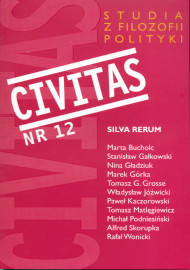
Keywords: Michael Foucault; Charles Taylor; Thomas Hobbes; power; legitimisation of power; sovereign; sovereignty
The author presents a criticism of the modern concept of power and, specifically, of the concept of ’sovereignty’ as articulated by Michael Foucault. What does it consist in, and what meaning does the undermining, by a French philosopher, of the idea of the legitimisation of power have for a modern state? A polemic with Foucault’s views, by Charles Taylor, serves as a departure point for the aforesaid considerations.
More...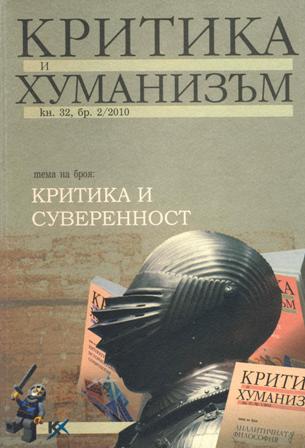
Keywords: Foucault; civil society; liberalism; politics; state; democracy; governmentality; ideology; rationality
By force of a certain liberal refl ex in both, the political theory and its everyday avatars, we are used to oppose civil society to the state. And by this, we see traditionally the strong civil society as a basis for a healthy democracy. This article aims to problematize such a presupposition by turning its attention to the recently published lectures which Foucault delivered at the Collège de France between 1978 and 1979 – Security, territory, population, and mainly Birth of biopolitics, where he analyses liberalism not as an ideology but as a specifi c political rationality linked to a number of governmental practices focused on the population understood as a multitude of entrepreneurial subjects. Although Foucault himself is not primarily interested in the liberal idea of civil society, an attempt is made to show that his refl ections on “liberal governmentality” offer important insights which allow us to think of civil society not as a sort of natural resistance to the supposedly artifi cial state repression but as a governmental object in a specifi c political technology of individuals, which renders the ultimate subject of liberalism – homo oeconomicus – governable.
More...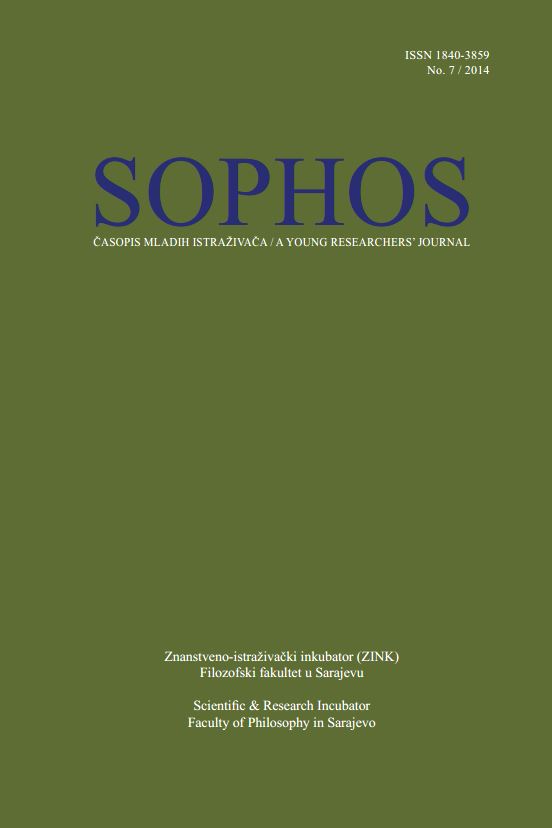
Prevedeno iz: Castello Branco, G. ‹La présence de Descartes et de Kant dans l’oeuvre de Foucault›. U: Revue Rue Descartes (2012), 72-80
More...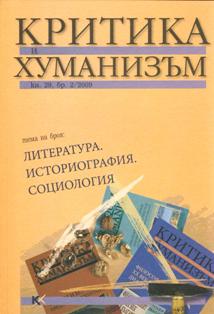
Keywords: Michel Foucault; historical sociology; socialism; revisionist paradigm; totalitarian; political rationality
This paper examines the relevance of Foucault’s later works to the field of historical sociology of socialism. First it deals with his refl ections on genealogy as a specifi c methodological approach, on governmentality as a form of modern political rationality, and on processes of subject formation, in order to situate Foucault’s views in the broad domain of historical sociology vis-à-vis some of its major topics such as the genesis of the modern power, state and institutions. Foucault, it is argued, brings an essential novelty in that field, by making a non-institutional analysis of power relations. Thus we are able to see the general technology of power proper to a given strategic historical situation. In the second place, the paper sketches the main points of the debate between the so called “totalitarian” and “revisionist” paradigms in the history of the socialist period in order to show the methodological advantages of the lаtter. It is precisely the multidimensionality of the “revisionist” paradigm that opens up the possibility of practicing a Foucauldian historical sociology of socialism, by broadening the notions of power and resistance exercised in the socialist societies. Finally the emphasis is put on the processes of subject formation as one of the latest developments of the Foucauldian approach towards socialism; three key studies are discussed in order to illustrate it.
More...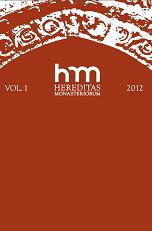
Keywords: heritage; monastery; Michel Foucault; historiography; discipline; punish; Parousia; monastic life; body; space; archeological analysis; genealogical analysis; claustralization
The purpose of this article is to present the problem of the monastic heritage in the view of Michel Foucault’s output. The monastic issue is most fully discussed by the afore mentioned author in his work Discipline and Punish: The Birth of the Prison, originally published in 1975 in France, and in Poland in 1993. In the Foucault’s point of view, the main legacy of the monasteries is the fact that they constitute the source, although far and transformed, of the disciplinary order, which has emerged at the turn of the 17th and 18th centuries, and according to Gilles Deleuze – remained roughly until the end of 20th century, when it was replaced by the life ordering logic of social control. In the first part of hereby article I will discuss selected threads of disciplinary society, which the author of Discipline and Punish considers as related to the organization of monastic life. Therefore, I will discuss the problem of the body and self, time and space, and power. In the second part of the article I will focus on the methodology of Michel Foucault – the archeological and genealogical analysis, which enables him to point out, as I believe, in a surprising and not so obvious manner, the link between the medieval convent life and the social organization in the period between the turn of 17th and 18th and the end of 20th century. Contrary to the widespread views of the monastic legacy problem in which it is considered for instance as the source of high culture or charitable activities, the heritage itself for Foucault are the social practices, of which aim was, figuratively speaking, replaced about the half of 17th century – from the preparation for the Parousia to the emphasis on economic efficiency and the emergence of new form of domination over the individual. Isolation, the control over the body and detailed schedule of the day distinguishing the monastic life so far, are becoming the techniques of power in the forming disciplinary society, generating new, unknown earlier, forms of domination.
More...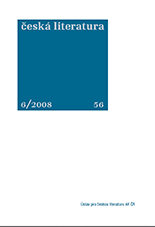
Keywords: Butler; Judith
A translation into Czech of Chapter Three of Judith Butler’s The Psychic Life of Power: Theories in Subjection (1997).
More...We can summarize and say that Foucault rejects classical sociological interpretations of power, according to which there is always one central power in each society that is vested in sovereignty of a one person or a group of people. In modern societies, according to Foucault such power does not exist. Power is found as constantly vibrating relation of powers, relation that is in a microphysical form stretched throughout an entire society. Foucault’s conception of knowledge is in accord with this: knowledge is a power over the others, it is a power of defining the others. Knowledge and the power are mutually interdependent. Knowledge no longer represents freedom, but it is a way of discipline, regulation and control. Modern society, that is determined by the knowledge, is a society of control. Lawyers and the theoreticians of government of the eighteenth century understood that having people observed is a more effective method and is more useful than individual exemplar punishment. Thus, we reach to the new modus of a constitution and execution of power. In postmonarchic societies, in era of modernity, society is becoming subjective power, that is maintained through the method of observation. Power is exercised in the name of the society, and not in the name of the absolute ruler. Such societies are named by Foucault as disciplinary societies. Discipline is a corporal submission. What happens is a transmission of power from monarchic to a disciplinary power that is perfectly embodied in Benthams outlines of Panopticon. Panopthicism is a projection of modern observative power. It is complementary to the growth of the population that is in demand of new technologies of administration and control in order to solve the problems such as public health, hygiene, living conditions, life expectancy and sexuality. Modern societies exercise control and discipline over their population using the methods and demands of science of human such as : medicine, psychiatry, psychology, criminology and sociology. These disciplines have established certain norms that are reproduced and legitimized through the practice of teachers, social workers,doctors, judges, policemen and directors. Observation is exercised in every institution: the very architecture of schools, factories, army barracks and prisons confirm this. Prisons resemble schools, schools resemble factories, hospitals and vice versa. Educational institutions are nothing but an object of a constatnt observation and latent punishment.
More...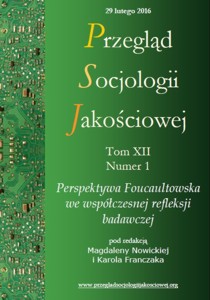
Keywords: Bioresistance; Biopower; Michel Foucault; Giorgio Agamben;Biopolitics;
Sex and sexuality play an important role in the theories of biopolitics of Michel Foucault and Giorgio Agamben. A theoretical division of biopolitics into two domains: zoopolitics (politics of bodies) and etopolitics (politics of behavior) exposes the differences between the two philosophers: Agamben focuses on zoopolitics, while Foucault – on etopolitics. This is why their research interests diverge: Foucault analyzes rather „typical” (etopolitical) medicine, sexology, or psychiatry, and Agamben – (zoopolitical) Nazi eugenics. Both thinkers have different attitude towards the body and conceptualize the political divergently. These differences in the basic assumptions result in different concepts of sexual bioresistance, however, Foucault and Agamben do not propose competing projects but rather operate on different levels – Foucault is focused on sexual practices of bioresistance, while Agamben – on a philosophical sexual utopia. Furthermore, both thinkers share the belief that non-normative, deviant sex has potential of bioresistance.
More...Keywords: modernity; attitude; event; childhood; imagination;
The paper compares two Foucault’s commentaries on Kant’s 1784 essay “Answering the Question: What is Enlightenment?” (Beantwortung der Frage: Was ist Aufklarung?): one concerns Foucault’s 1982-1983 lecture “The Government of Self and Others” (Gouvernement de soi et des autres), and the other his 1984 essay “What is Enlightenment?” (Qu’est-ce que les Lumieres?). Starting with a thesis that Baudelaire connects modernity (la modernite) with the experience of childhood, Foucault in his argument distinguishes between childhood, on the one hand, and immaturity or nonage (Unmundigkeit), on the other. Accordingly, enlightenment (Aufklarung), as the emergence from nonage, refers to the ability not to be governed (freedom), and not to the ability to govern (power). Hence, to emerge from nonage is at the same time the ability of the self-imposed return to childhood. This ability for intentional infantilism is connected with the concept of modernity as an attitude. The paper further juxtaposes and discusses Foucault’s modernity as an attitude and modernity as an event from his lecture “The Government of Self and Others”.
More...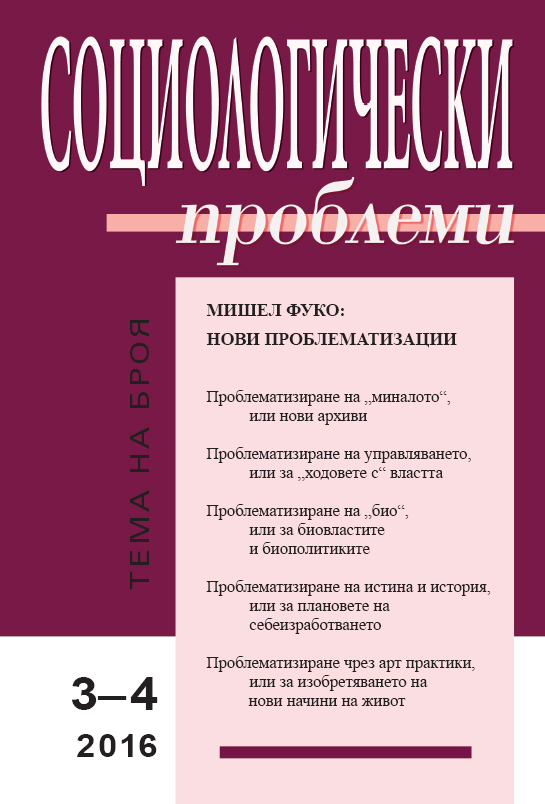
Keywords: biopolitics; biopower; Moheau; demography; population; body; reproduction; human vital milieu
This article discusses the concept of “biopower” in the light of Michel Foucault’s courses at the Collège de France, especially his lectures between 1978 and 1980. After having offered a definition of “biopower” and “biopolitics”, I will discuss in more details Foucault’s reading of the great book of the French protodemography Recherches et Considérations sur la population de la France [Researches and Considerations on the Population of France] by Jean-Baptiste Moheau. I will try then to answer the question: Why has Foucault defined this book being “the first great text of biopolitics”? My answer points out that in Moheau the government of the human life is not restricted to a technique of intervention in the vital human milieu; it rather formulates explicitly the principles of a “government of morals” – one that addresses particularly the human reproduction. As a result, it is getting clear that the “biopolitical governmentalization of life” must have already been a response of another project of mastering one’s own body and one’s own descendance – a project that was visible namely by the extension of the contraceptive techniques in the popular milieus in France, starting in the middle of the 18th century. To sum up, my thesis has not been designed as a discussion of the Foucauldian thesis; it is rather an extension of his theorizing on biopower, and it has been made possible namely through the lectures Foucault had done at the Collège de France.
More...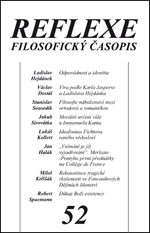
The paper is a reading of Michel Foucault’s History of Madness. The aim is to show that the purpose of Foucault’s “archaeology of unreason” is the reconstitution of tragic experience. It is shown that “an archaeology of silence” does not equal expressing madness itself; rather, it is an attempt to reveal the silence and deception of reason, insofar as reason hides its original dialogue with unreason. The second step reveals the birth of the question of the tragic in a dynamic relationship of reason– unreason, interpreted symmetrically to the Nietzschean concept of the Apollonian and the Dionysian.
More...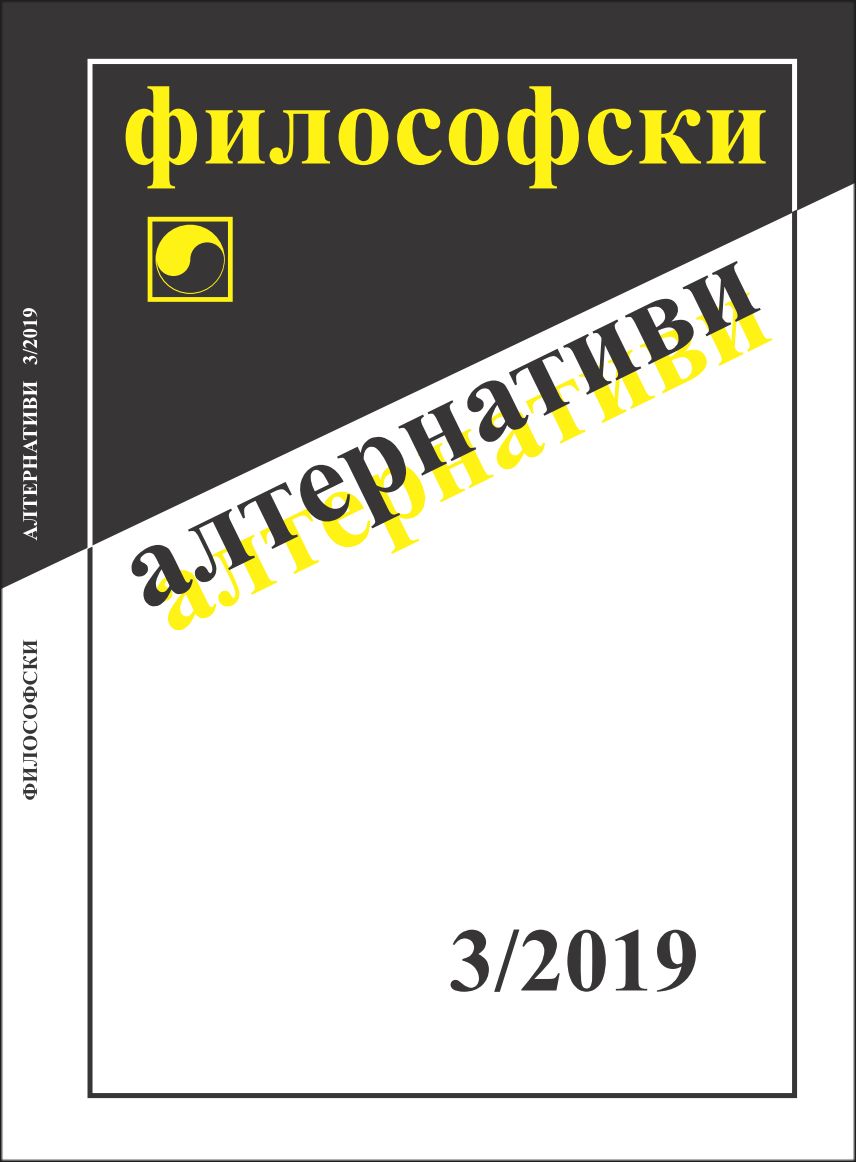
Keywords: subjectivity; truth; self-knowledge; techne tou biou; care of the self; analytics of power
Michel Foucault’s aesthetics of existence interweaves several themes: a concept of ethics as a form of relation towards oneself, care for the self, the idea of shaping life into a work of art, and the intention to create new modalities of subjectivity. This is an attempt to recreate an ethics and aesthetics of self. The subject here is determined by relation to oneself, not by a rule or a code. Foucault’s thinking is a way of answering the question of becoming oneself, but the answer differs from that of the Platonic and Christian models. In the model elaborated in the culture of the self, the significance of which Foucault supports, the leading factor is ethical work. The latter ensures the reshaping of the subject through practices of the self. Here, care for the self is a main form that encompasses the art of living. It is a form of life that leads to the transformation of self in accordance with the truth. Foucault’s aesthetics is ethics, and ethics is related to politics. Their framework is the fundamental problem of the relation between subjectivity and truth.The question of the constitution of subjectivity is related to that of the production of truth. Subjectification conceptualizes this form of subjection, where the subject is objectified in a truthful discourse. Another way of constituting the subject is through processes of subjectivation, seen as practices of freedom. The theoretical focus is on the possibility of creating new modalities of subjectivity through the processes of subjectification.
More...
Keywords: social power; discourse; ruling; sovereignty; legal validity; ideology; subjectivity; emancipation
This paper seeks to present a synthesis of the analyses of Michel Foucault’s social power,taking into account the content of the lectures he gave in Collège de France since thesecond half of the 1970s. Based on the counterfactual assumption about the theoretical continuity and coherence of the deliberations of this French sociologist, I will try toreconstruct the discursive model of modern power, contrasting his assumptions with theprinciples which are foundations of the previous types of power (sovereign and disciplinary power). In this respect, the representation, constitution and revocation of subjectivity, the difference between the ideological explanation and the perspective of knowledgepower and the conditions and limitation of the emancipation of consciousness are crucial.This analysis allows to determine the practically impossible – but theoretically necessary – category of ideal power, which sheds light on the directions and methods of theexpansion of modern power and indirectly indicates the sources of its efficiency and possible defensive tactics. As regards the last issue, it is particularly important to differentiatebetween the endlessly open social criticism and the thoroughly ahistorical temptationof demythologisation (posing a threat to it), which naively looks for the non-discursivefoundations of knowledge.
More...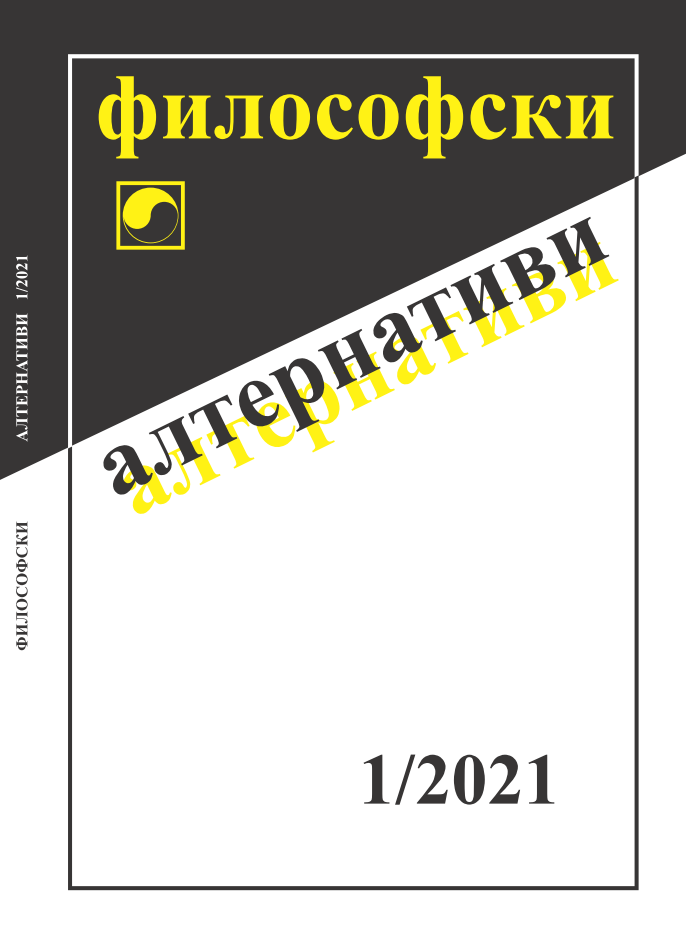
Keywords: Michel Foucault; ethics; parrhesia; truth; communication; power;
The article explores Michel Foucault's ideas on the phenomenon of parrhesiа and its role in telling and defending the truth. An attempt is made to show that, according to Foucault, sincere speech, as an expression of subjective truth, is a kind of moral position with regard to the truth, without which communication, or the full exercise of power in society, would be impossible. This also applies to the modern communication situation, in which the various procedures for establishing the truth or authenticity of the facts should not be absolute and should not replace the free choice and moral position in the professional morality of mass communication specialists.
More...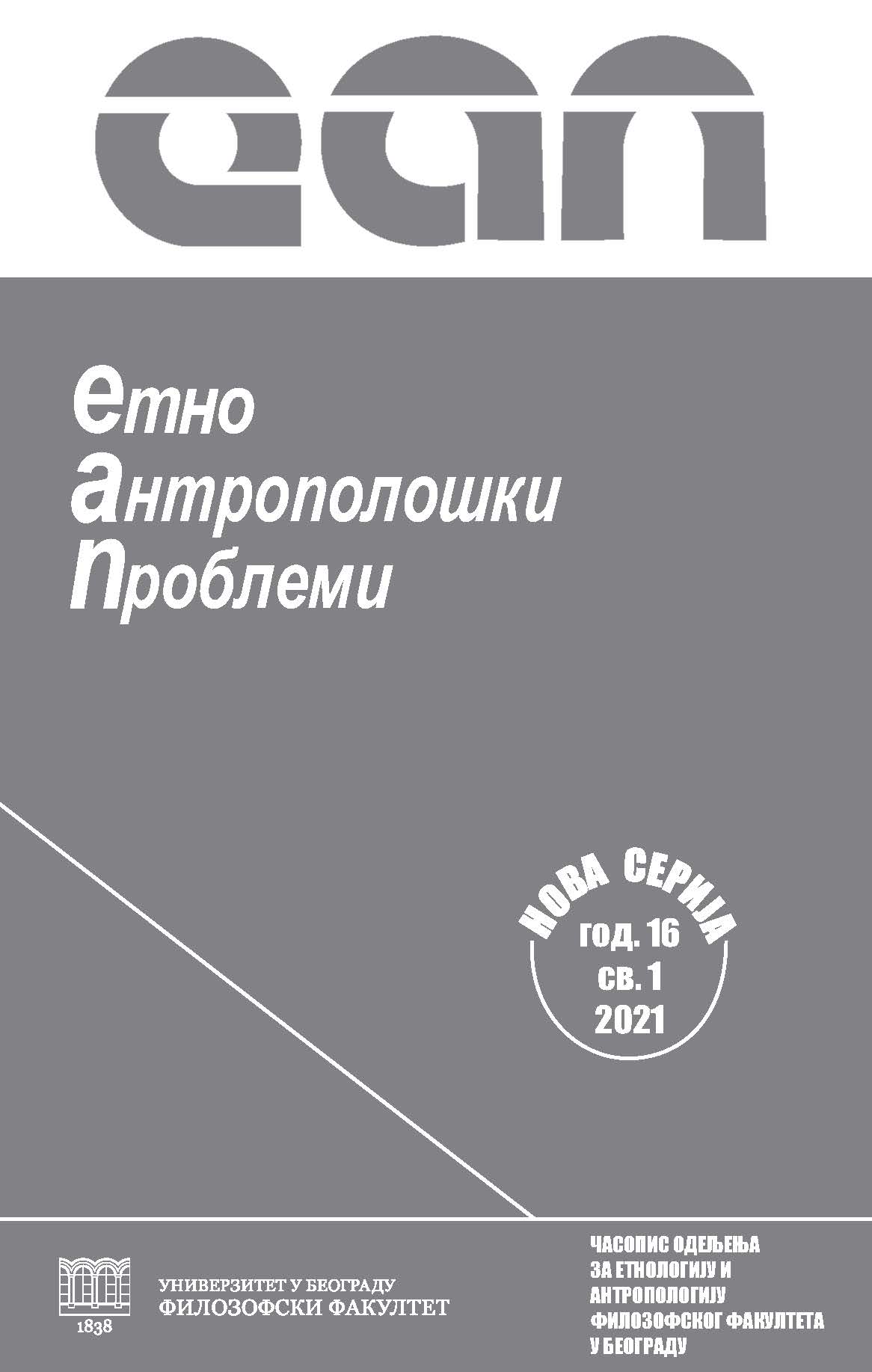
Keywords: Michel Foucault; methodology; rules; archeology; genealogy; subject(ivity)
The subject of this paper is the methodology Michel Foucault used in his work. In the paper we will try to show a continuity in his work through the concept of “rules”. We will examine how Foucault used the notion of rules in the three methodological approaches found in his research. In the first section we will show how he used the notion of rules in his archeological method aimed at researching discursive practices. Then we will examine how he used the notion of rules in his genealogical method through which he combined the research of discursive and non-discursive practices. Lastly we will examine the third period of his work in which he researched the rules for forming subjectivity. In the end we will give a general understanding of Foucault’s methodology in the light of the concept of rules which will be named “interpretative analytics of practice” and then relate it to his understanding of the ontology of those rules. Our paper will be concluded by pointing out some of Foucault’s ideas about a non-scientific role his scientific work should have.
More...
Keywords: closed society; Foucault's dispositive of power; contemporary sociological theories of globalization; paradigms of contemporary philosophy;
Pitanje o tome što je društvo u okružju digitalnih tehnologija umreženih na taj način da umjesto ljudi kao subjekata sami misleći strojevi komuniciraju međusobno izvršavajući programske zadaće u kognitivnome ili informacijskome kapitalizmu, očito pretpostavlja odgovor na pitanje u čemu je bitna razlika između čovjeka i stroja. Budući da suvremene sociologijske teorije globalizacije uglavnom polaze od novoga evolucionizma, bez obzira bilo da je riječ o socio-konstruktivizmu ili socio-biologizmu, onda je samo po sebi jasno da problem određenja društva "danas" proizlazi iz toga što više nije jasno ima li čovjek neku svoju "ljudsku prirodu" koja mu je ontologijski zadana, ili se, pak, njegova kolektivna egzistencija svagda iznova mora opravdati u odnosu na događaje u povijesno-kulturalnome kontekstu. Ako, dakle, unatoč silnog procvata znanosti koje proučavaju funkcije ljudskoga mozga i njegove reakcije na promjene u okolini još uvijek ne možemo s izvjesnošću odbaciti moguće iluzije drevne metafizike s njezinom "velikom pričom" o postojanosti bitka i trajnosti vremena, čini se da su postavke posve različitih paradigmi suvremene filozofije i društveno-humanističkih znanosti barem u nečemu suglasne.
More...